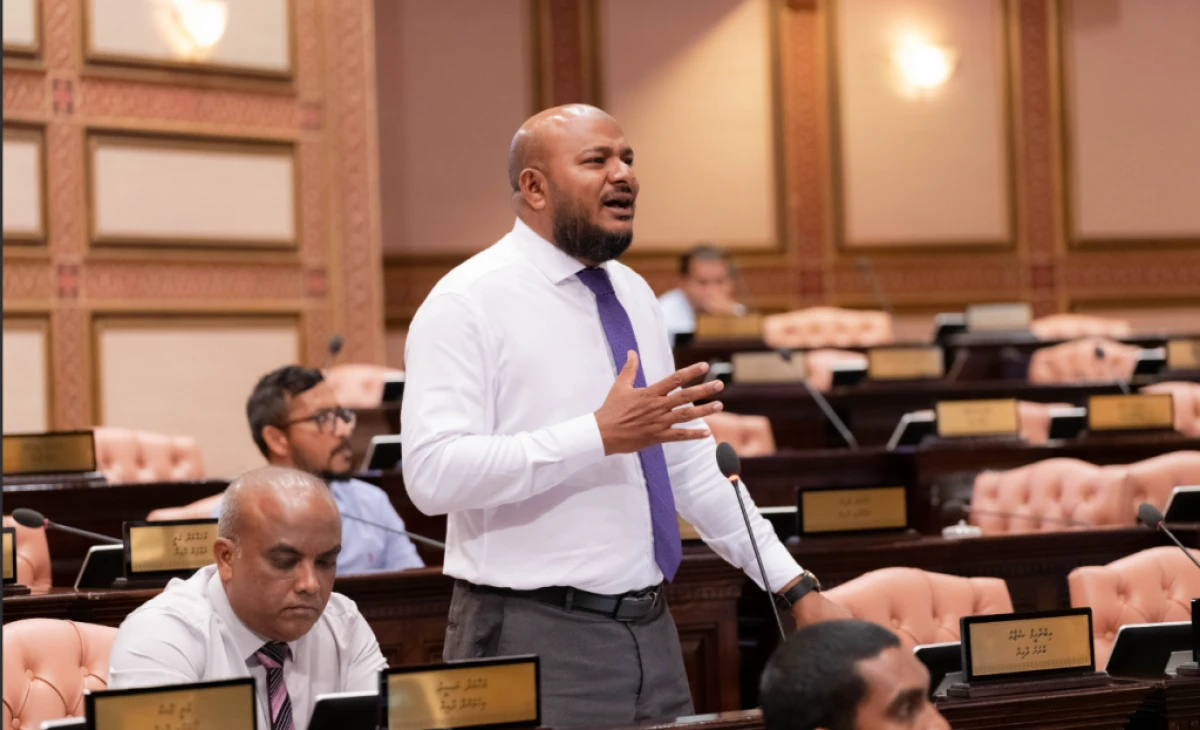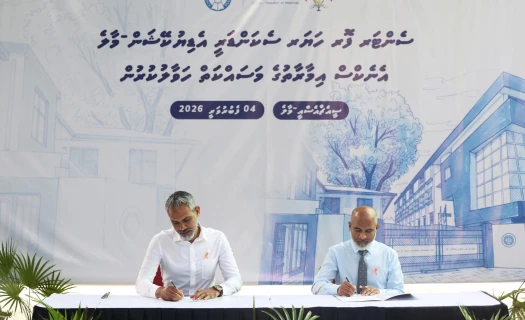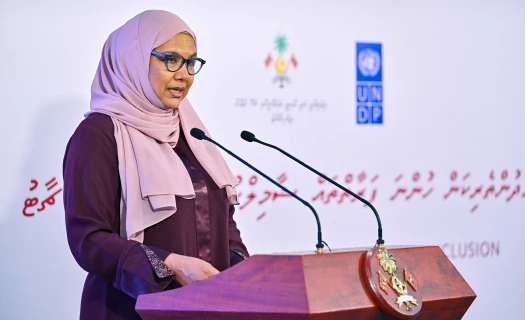Wed, 04 Feb 2026
|DHIVEHI
Resolution tabled to review council structure and Decentralisation Act
16 Jun 2025
|

Photo: People's Majlis
Parliament has introduced a proposal to gather Members of Parliament’s views on suggested amendments to the Decentralisation Act, which would restructure island councils by appointing one or two full-time councillors per island, with the remaining members receiving sitting allowances.
The resolution was submitted by Parliament Member for Baarah constituency Ibrahim Shujau, who highlighted the need to evaluate the challenges and shortcomings of the current decentralised governance model. The proposed changes aim to reduce the financial burden of maintaining multiple full-time councillors while improving the overall efficiency of local administration.
In presenting the resolution, Shujau questioned the effectiveness of the existing system, arguing that despite considerable expenditure, councils have not produced the desired outcomes. He suggested that reducing the number of full-time councillors could lead to significant savings and create opportunities for individuals with professional or academic backgrounds to contribute through part-time roles.
While acknowledging that the current number of councillors may not be inherently problematic, Shujau questioned the necessity of appointing five full-time members to each council and called for a thorough review of the structure.
Over the past 15 years, four council elections have been held, resulting in the election of thousands of councillors and the expenditure of billions of Maldivian Rufiyaa. Despite this, Shujau argued, the decentralisation system has yet to deliver substantial progress in island and provincial development.
He also expressed concern that the system has, in practice, become a platform where senior political party activists often assume leadership roles within local councils, undermining the core objectives of decentralised governance.
Additionally, Shujau pointed to ongoing issues of political partisanship within councils, citing instances where opposition-aligned councillors have been accused of refusing to cooperate with the central Government and, in some cases, actively obstructing development efforts.








